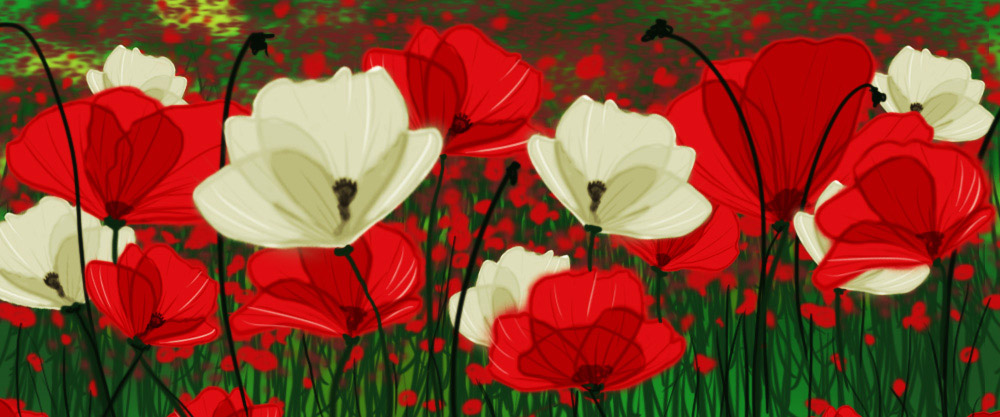A group of university students in Ottawa have sparked controversy through the ceasefire.ca white poppy campaign, set forth by Rideau Institute. The pacifist program has attracted the criticism of many nationwide.
The campaign involved the distribution of white poppies with the words “I remember for peace” to the general public in the days leading up to Remembrance Day. Bill Maxwell, secretary of the Royal Canadian Legion’s poppy remembrance committee, feared that the white poppy would be taken as a personal insult to those who served on behalf of Canada.
Veterans Affairs Minister Julian Fantino told the Toronto Sun that the white poppies are disrespectful towards the purpose of Remembrance Day.
“To try and intervene in this fashion, I think, is totally disrespectful, and I would suspect that most reasonable Canadians would see it that way.”
The red poppy plays a significant part in Remembrance Day ceremonies today.
The University of Ottawa students criticized the traditional red poppy movement. White poppy activist Celyn Dufay told Sun News, “Young people don’t want to celebrate war. We want to work for peace.”
Originating in the United Kingdom, the white poppies were introduced to Canada in the 1930s. After 1945 they became less common, but were promoted later during the Cold War to ask for peace.
Peace Pledge Union, a London-based pacifist organization that promotes white-poppy-wearing stated, “The white [poppies were] not intended as an insult to those who died in the First World War—a war in which many of the white poppy supporters lost husbands, brothers, sons and lovers—but [as] a challenge to the continuing drive to war.”
In the publication Common Ground, Geoff Olson wrote that the red poppy represents only one side of sacrifices. The white poppy also represents the losses of civilians and the continued hope for peace, and can be worn to complement its red cousin.
In 2010, the Royal Canadian Legion threatened to bring legal action against a distributor of white poppies. As a result, the original supplier stopped selling the white flowers, only for several other businesses to offer to sell the poppies.
Many have voiced their disappointment at the continued distribution.
“[Veterans] made their sacrifices in blood, and for us to disrespect them, I think the young individuals should really reconsider what they’re doing and get a reality check,” MP Jim Karygiannis told the Toronto Sun.
His sentiment was echoed on Twitter by London, Ontario radio host Jeff Wareham who tweeted, “Count me among those who wish to slap anyone wearing #whitepoppy.”
Politicians outside of Veterans Affairs Canada have made it clear that they do not support the white poppy campaign. MPP Catherine Fife told the Cord, “If you have something that is working then you shouldn’t have to introduce something else. [ . . . ] There are strong traditions within this sector and I think that those traditions exist for a reason.”
MP Ted Opitz of the Conservative Party of Canada echoed this in a call to the Liberal and NDP parties to reject the white poppy pins.
Regardless of the controversy, Dufay said he will not stop handing out the white poppies.
“We can’t account for other people’s feelings, however, no one has a monopoly over Remembrance Day.”


